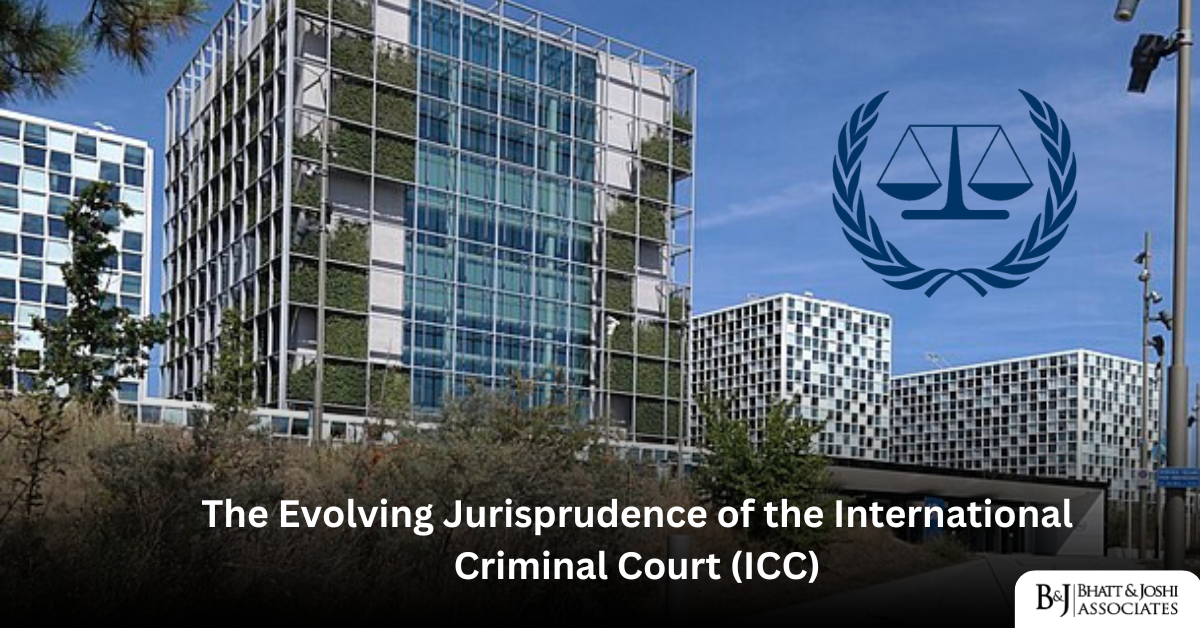The Evolving Jurisprudence of the International Criminal Court (ICC)
Introduction
The International Criminal Court (ICC) represents a landmark achievement in the pursuit of justice for grave international crimes, including genocide, war crimes, crimes against humanity, and aggression. Since its establishment in 2002 under the Rome Statute, the ICC has developed a growing body of jurisprudence that has shaped international criminal law and accountability mechanisms. This article explores the evolving jurisprudence of the ICC, its significant cases, challenges, and the court’s influence on global justice.
The Mandate and Structure of the International Criminal Court (ICC)
The ICC is the first permanent international court established to prosecute individuals for the most serious crimes of concern to the international community. It operates as a court of last resort, intervening only when national jurisdictions are unwilling or unable to prosecute alleged crimes. Its jurisdiction is limited to crimes committed on the territory of state parties or by their nationals, unless referred by the United Nations Security Council (UNSC).
The ICC consists of several organs, including the Presidency, the Office of the Prosecutor (OTP), the Registry, and the Chambers, which include Pre-Trial, Trial, and Appeals Chambers. These bodies collectively ensure the court’s administrative and judicial functions.
Landmark Cases and Decisions
The ICC’s jurisprudence has been shaped through its adjudication of cases involving high-profile individuals and complex legal issues. Some notable cases include:
- Prosecutor v. Thomas Lubanga Dyilo (2012): The ICC’s first verdict found Lubanga, a Congolese warlord, guilty of recruiting and using child soldiers. This case underscored the court’s commitment to addressing crimes involving children and set important precedents regarding the use of video and witness testimony.
- Prosecutor v. Jean-Pierre Bemba Gombo (2016): Bemba, a former vice president of the Democratic Republic of Congo, was convicted of crimes against humanity and war crimes committed by troops under his command. This case expanded the doctrine of command responsibility, emphasizing the liability of leaders for crimes committed by their subordinates.
- Prosecutor v. Bosco Ntaganda (2019): Ntaganda, another Congolese warlord, was convicted of war crimes and crimes against humanity, including sexual slavery and conscripting children. The case advanced the court’s jurisprudence on gender-based crimes and sexual violence.
- Situation in Georgia (2021): The ICC issued arrest warrants related to alleged war crimes during the 2008 conflict between Georgia and Russia. This case highlights the court’s efforts to address crimes in politically sensitive contexts.
Evolving Legal Principles
The ICC’s jurisprudence has contributed significantly to the development of international criminal law. Key legal principles advanced by the court include:
- Gender-Based and Sexual Violence: The ICC has prioritized prosecuting sexual and gender-based crimes, setting important precedents on the classification and adjudication of these offenses.
- Command Responsibility: Through cases like Bemba, the court has clarified the liability of commanders for failing to prevent or punish crimes committed by forces under their control.
- Victim Participation and Reparations: The ICC has established mechanisms for victim participation in proceedings, recognizing their rights to justice and reparations. This approach represents a significant shift toward victim-centered justice.
Challenges Facing the International Criminal Court (ICC)
Despite its achievements, the ICC faces significant challenges that affect its legitimacy and effectiveness:
- Jurisdictional Limitations: Many major powers, including the United States, Russia, China, and India, are not parties to the Rome Statute, limiting the court’s reach and effectiveness.
- Political Interference: The ICC has faced accusations of bias and political manipulation, particularly in cases involving African leaders. This criticism has led to tensions with the African Union and calls for mass withdrawals from the court.
- Enforcement Mechanisms: The ICC relies on state cooperation to execute arrest warrants and gather evidence, which often proves challenging in politically charged situations.
- Resource Constraints: The court’s limited financial and human resources hinder its ability to handle multiple complex cases simultaneously.
Recent Developments and Emerging Jurisprudence
In recent years, the ICC has expanded its focus to address new challenges and broaden its jurisprudence:
- Climate Change and Environmental Crimes: There is growing advocacy for the ICC to recognize ecocide as a crime under the Rome Statute. This development would address serious environmental destruction with global implications.
- Cybercrimes and Digital Evidence: The rise of cyber warfare and digital evidence has prompted discussions on the ICC’s role in addressing cyber-related crimes within its existing mandate.
- Expanding Victim Participation: Recent cases have seen greater emphasis on ensuring that victims have meaningful participation in proceedings and access to reparations.
- Universal Jurisdiction and Complementarity: The principle of complementarity, which prioritizes national jurisdiction, has led to increased engagement with domestic courts, fostering a collaborative approach to justice.
The International Criminal Court Impact on Global Justice
Despite its challenges, the ICC has had a profound influence on global justice. It has:
- Strengthened international norms against impunity for grave crimes.
- Encouraged domestic prosecutions by complementing national legal systems.
- Increased awareness of victims’ rights and the importance of reparations.
- Contributed to the development of a comprehensive body of international criminal law.
Conclusion
The International Criminal Court’s evolving jurisprudence reflects its critical role in advancing justice for the most egregious international crimes. While the ICC faces significant hurdles, its contributions to international criminal law and accountability mechanisms cannot be understated. By addressing emerging challenges and fostering greater cooperation with states and international organizations, the ICC can continue to strengthen the global justice system and uphold the principles of accountability and the rule of law.
 Whatsapp
Whatsapp


